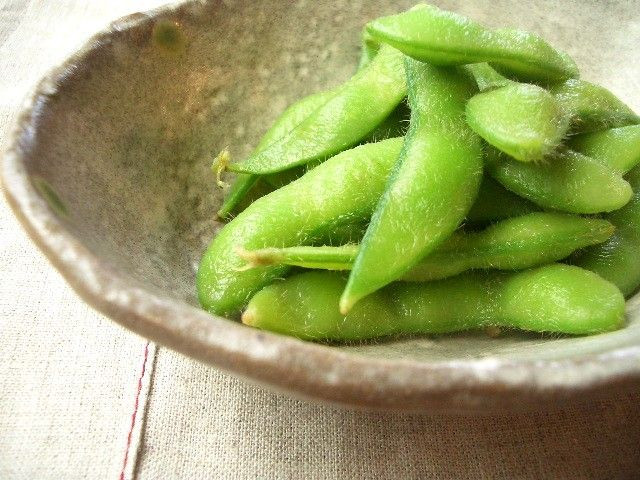Scientists Finally Figure Out Why Soy Foods Protect Against Colon Cancer

The link between eating soy-based foods, such as soy beans and tofu, and lower rates of colon cancer has long been known, but scientists didn't quite know the molecular reasoning behind the phenomenon. Now, in a research paper out of the University of Illinois, Professor Hong Chen and her graduate student Yukun Zhang reveal that a bioactive compound found in soy, called genistein, protects against colon cancer by repressing cell signals that normally push a cell to become cancerous. Genistein, in other words, can block cells from growing rapidly and developing into polyps and ultimately tumors.
Read more: Soybean Hormone Could Promote Younger Skin
How does the gut work?
Your intestines are filled with stem cells that produce the delicate lining that absorbs nutrients and water from the food you eat. These stem cells proliferate and divide rapidly, in order to give you a new intestinal lining every week. This high rate of turnover in the intestines makes that organ extremely prone to cancers.
In these cancers, certain signaling between cells is always turned on, leading to an uncontrolled, cancerous proliferation of cells. "However, in 90 percent of colon cancer patients, an important growth-promoting signal is always on, leading to uncontrolled growth and malignancies. Our study suggests that the aberrant Wnt signaling during the development of colon cancer can be regulated by soy-rich diets," said Chen.
Read more: Soybean Oil Linked To Lower Cancer Risk
Soy reduces precancerous lesions
The researchers found that adding genistein to the diets of laboratory rats reduced their precancerous lesions, such as polyps, in the colon by more than 40 percent when they were exposed to a carcinogen that usually leads to colon cancer. The chemical from soy also reduced Wnt signaling between cells, which can slow the growth of cells, and helped them remain at the same levels as rats not treated with a cancer-causing compound.
"Genistein decreased the expression of three genes and repressed this signaling process that is associated with abnormal cell growth and cancer development," Chen said. Chen also made the point that the foods we eat can affect the expression of certain genes and that this "epigenetic" factor can influence protection from or induction of cancer.
"The genetic information you inherit from your parents is not the whole story. Our dietary choices, our exposure to environmental toxins, even our stress levels, affect the expression of those genes," she said.
Anecdotal evidence of soy's role in the prevention of cancer in people is seen in East Asian people who move to the United States. After changing their diets to one that contains far less soy-based foods, this population sees increased colon cancer incidences.
Source: Zhang Y, Li Q, Chen H. DNA methylation and histone modifications of Wnt genes by genistein during colon cancer development. Carcinogenesis. 2013.
Published by Medicaldaily.com



























